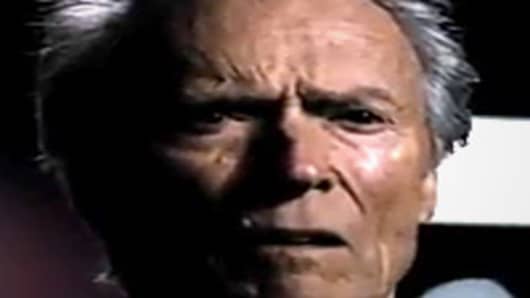Shown before an audience of more than 110 million people, according to Nielsen, the advertisement came at a fortunate time for Mr. Obama’s re-election team. It dovetailed with a positive jobs report on Friday and the rolling start of a general election campaign that it assumes will be run against Mitt Romney. (Mr. Romney opposed the auto bailout, as did Mr. Eastwood in an interview with The Los Angeles Times in November.)
But the conservative outcry over the spot brought to the foreground the tricky politics of the auto industry rescue, which has cut both ways for the Obama administration. In the late summer, Fordshowed a documentary-style commercial in which a customer asserted that he was not going to buy a “car that was bailed out by our government.” Ford was solvent enough that it did not need the loans given to Chrysler and General Motors.
Ford pulled the commercial, but said it did so only in the normal course of its advertising rotation.
Other ads have proved just as problematic for the president’s message that economic resurgence is around the corner, if not already under way. An Audi commercial painted a picture of the United States as a Depression-era wasteland where “over 100,000 miles of highways and bridges are in disrepair”; shattered televisions littered the streets, and rusty pickup trucks left trails of used tires as they dragged their way, apparently, to the junkyard.
In a recent commercial for Sears, a young couple and their real estate agent were shown touring what was clearly a foreclosed house in need of new appliances — apparently because the originals had been stripped.
Though Chrysler says it was not seeking political gain with the ad, it was certainly attuned to the sensitivities. In one scene that used footage from protests outside the Wisconsin State Capitol, signs bearing pro-union messages were edited out.
Officials speaking on behalf of Chrysler and Mr. Eastwood said he is donating to charity whatever money would have gone to him for filming the ad.
Democrats also dismissed the notion that the ad amounted to political payback. Steve Rattner, a former adviser to Mr. Obama on the auto bailout, called that idea a “conspiracy theory.” Referring to Sergio Marchionne, Chrysler’s chief executive, Mr. Rattner said, “He doesn’t need anything from the government at this point.”
Even some Republican advertising strategists said they failed to make the political connection to Mr. Obama.
“To the extent that anything that sounds good about the economy might also sound good for the president is an outcome,” said Steve Grand, who creates ads for Republican candidates and political groups. “But I don’t think that was the intention.”
Mark McKinnon, Mr. Bush’s former advertising strategist, noted that the ad’s message was ambiguous enough that it could be construed as helping Mr. Romney. “It’s half time in America,” he said. “And we are way behind, and we need a new quarterback.”
Brooks Barnes, Jackie Calmes and Stuart Elliott contributed reporting.



